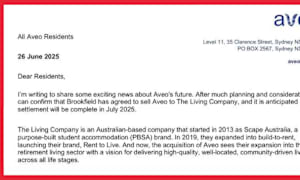In last week’s Village Manager newsletter, we discussed the issue of mandatory buybacks and the ‘Aged Care Rule’ which is in place in Victoria and other states are moving towards.
The rule states that when a village resident moves to an aged care home, the operator will pay the Daily Accommodation Payment (DAP) until the home is sold – about $50 a day or $18,000 a year.
That money then comes out of the resident’s final payout from the operator – not ideal.
Aged care consultant James Underwood (pictured) has reminded us that the Federal Government’s ‘Hardship Rule’ may be the better option for both residents and operators.
Under this rule, if a person cannot pay their RAD/DAP because of the unsaleability of their asset i.e. their village unit, the Commonwealth will pay the full DAP.
“An RV unit that won’t sell at the reasonable price determined for it should constitute an unsaleable asset,” he tells us.
“Both the RV operator and the departing resident would likely prefer a hardship determination to be made as it can start from the day of entry to residential aged care and it does not reduce the final payout to the departing RV resident.”
The only gap is the six months in between – the resident must still find the cash to pay their DAP until they receive approval. “They may have accrued a significant default in that time,” James acknowledges.
However, with houses not selling as easily as they were a year or two ago, James says he expects to see more people making use of these rules – particularly in Sydney and Melbourne.
Clarification: last week’s Village Manager newsletter also stated that in QLD, VIC, SA and WA, it is now regulated that units be paid out at 18 months if not sold.
This is NOT true for WA and the story has now been corrected on our website.










